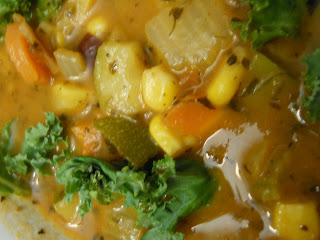
There are many people who will wonder "Why vegan? Why not just vegetarian? What harm does milk, eggs, honey, and wool do?". Well, there are numerous reasons why not to eat animal products that don't kill the animal, but as far as wool goes, a sheep must be sheared. Cows and goats need to give birth to produce milk, I'm sure eggs aren't pleasant for a hen to lay (and I'm sure she'd prefer it if a rooster fertilized it for her), and bees go to great lengths to make honey (not to mention honey is basically bee regurgitation).
I always get questioned why I don't eat honey, but not usually for wool. I have, however, received the slightest bit of teasing from a vegetarian uncle of mine. Details are fuzzy, but I remember him saying "Poor, naked sheepies" over some article of clothing made from wool. I'm not surprised most people don't know the conditions of sheep for wool, but wool just isn't ethical.
Much like their made-for-meat counterparts raised in factory farms, sheep live in poor living conditions and are fed unnatural, inorganic diets.
Similar to how how factory farm animals go through tail-docking, castration (male sheep suffer from this too), teeth-clipping, beak-trimming, and dehorning, sheep go through something called "Mulesing". (See Right)

Mulesing is a practice where lambs are forced onto their backs so chunks of skin and flesh can be "hacked from their rumps with gardening type shears". A sheep's skin will naturally form wrinkles- which, when living in close confinement in their own feces, are a breeding ground for flies. Mulesing is done, usually without the benefit of anesthetics, to prevent the flies from laying eggs in the sheep.
This practice, however, often leaves open wounds on the sheep, which become infested with maggots.
A sheep's production of wool is based on breed and genetics. If a sheep does not produce a profitable amount of wool, s/he will be sold for the meat industry.
Since the sheep was not bred specifically for meat, the meat will be considered "low-grade", and sold at a very low price.
Every year, millions of sheep are shipped from Australia (the biggest wool producer in the world), tightly packed onto open-decked boats "for a journey many will die from" to be slaughtered for the cheap, low-grade meat.
Sheep who are ill, weak, or injured often will collapse and be trampled to death.
Below; Sheep wait to be packed onto a cargo chip Inside a live-export ship
Inside a live-export ship
Others will die from exposure to the harsh conditions of the sea, disease, heat, cold, or starvation.
Every year, tens of thousands of sheep will die from these live-exports.
Those who survive this three-week voyage are instantly taken off to the slaughterhouse. The sheeps are slaughtered by a slit in the throat. Pre-stunning is not done, and the sheep are left to bleed to death.
And if the ethical reasons were not enough to give up on conventional wool, environmental reasons should be.
About 4,000 tons of manure and 2 to 6 million liters of urine are washed into the sea each voyage, along with the bodies of the sheep who didn't survive the trip.
 Above; a truck bringing sheep from ship to slaughterhouse overturns.
Above; a truck bringing sheep from ship to slaughterhouse overturns.
Below; Sheep Slaughter
Another thing to note: in March, 1980, a live export ship, the Farid Fares, caught fire and sank, bringing 40,605 sheep with it.
Although, I wouldn't say wool is all bad. I will never wear fur, leather, pearls, or silk. I won't ever eat meat, dairy, eggs, or honey. But I can see myself raising sheep and shearing them every spring, throwing their wool, dying it with natural dyes, and knitting it into eco-friendly clothing and toys.
It's much more environmentally-friendly than acrylic, polyester, or inorganic cotton (more pesticides are used on cottan than any other crop). And, unlike other animal products, the sheep really don't have to give anything up if they are treated with love, dignity, and respect like they deserve.
But no matter what, wool will always be itchy, and organic cotton will always be better!
Sources:
http://www.mapleleafweb.com/forums//index.php?showtopic=13533
http://animal-lib.org.au/subjects/animals-for-food/48-sheep-live-export.html








